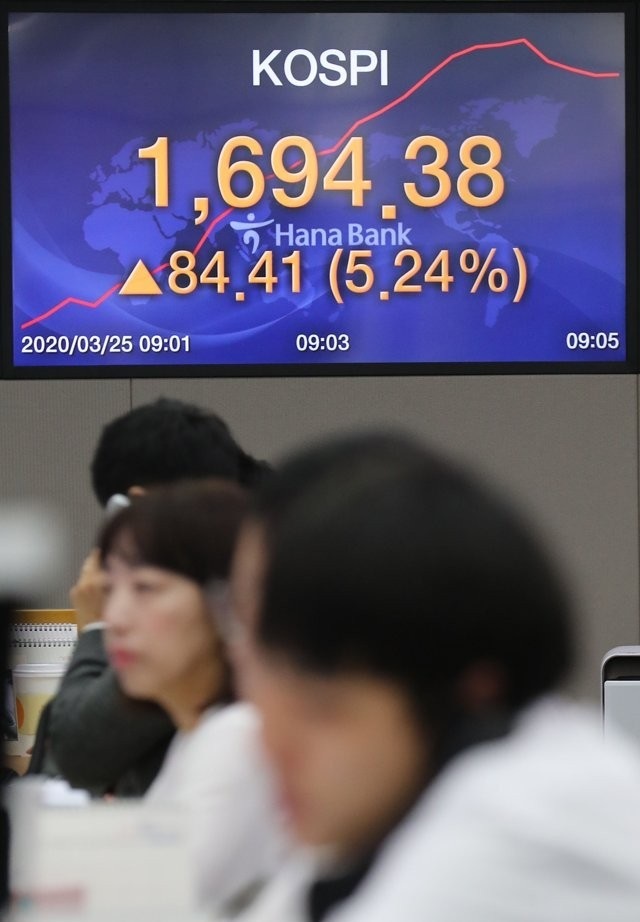 |
Currency dealers work in the dealing room of Hana Bank in Seoul on March 25, 2020. (Yonhap) |
Retail traders, which have so far buttressed the pandemic-hit stock market, appear to have begun to unload shares, becoming net sellers in the market, data showed Sunday.
According to the nation’s sole securities exchange operator Korea Exchange, they sold 1.27 trillion won ($1.13 billion) worth of stocks on Oct. 1-23.
For the 14 trading days from Oct. 5-23, they sold 1.06 trillion won of shares in market kingpin Samsung Electronics, the most among large-cap companies. They sold off 269.3 billion won of LG Chem shares and 184.7 billion won in Posco shares.
During the cited period, foreign traders and institutional investors net bought shares worth 1.26 trillion won and 372 billion won, respectively.
The selling trend of retail traders is said to be linked to the government’s plan to strengthen rules on large shareholders.
From April next year, the government plans to levy a stock transfer tax on individuals whose holdings in a single stock are worth 300 million won or more. If those stakeholders realize profits by selling shares after the new rules are implemented, they will be required to pay 22 to 33 percent on their gains as a transfer tax.
“The tougher tax rules can clearly be a reason for retail traders to rush to sell stocks recently,” said Lee Young-gon, an analyst from Hana Financial Investment. “As the planned rules are not expected to be changed, individuals have kept offloading shares since October.”
As individuals have increasingly jumped in the stock market since earlier this year, quite a lot of retail traders are forecast to be affected by the strict tax rules.
About 80,000 retail investors owned shares worth between 300 million won and 1 billion won in a single company as of last year. Their stocks were valued at 41.5 trillion won, which amounts to about 10 percent of the 417.8 trillion won of stocks owned by individuals.
By Kim Young-won (
wone0102@heraldcorp.com)








